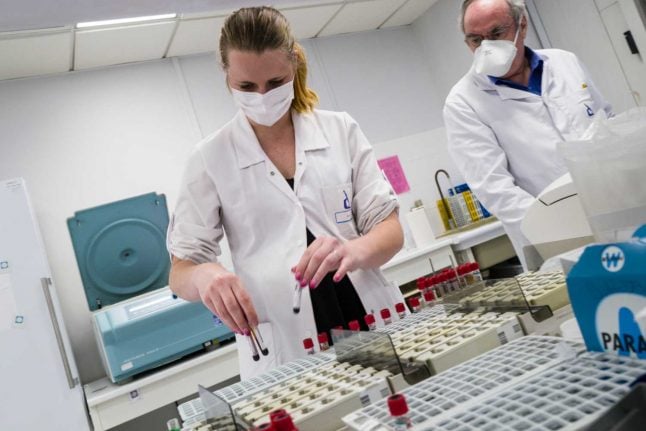Patrick Mathys, from the Swiss Federal Office of Public Health, said on Tuesday that more than 200,000 people had been tested for the coronavirus in Switzerland.
Approximately 25,000 of those tests were positive, of which 3,000 needed hospital care. More than 1,100 people have died in Switzerland as a result of the virus, while around 400 people remain in intensive care.
UPDATE: What you need to know about the coronavirus crisis in Switzerland
In total, Switzerland carries out an average of 6,000 tests each week day, with an additional 2,500 on Saturdays and Sundays.
Although the government has been increasing its testing capacity, Mathys said during the press conference that the demand for tests had waned in recent days.
Switzerland currently is working towards a testing capacity of 15,000 per day, but is waiting on essential materials in order to carry out the tests.
“Basically, demand (for tests) has waned. But we know that not everyone who should be tested can be tested now,” he said.
In order to allow for a greater easing of restrictions, Mathys said the country would need to increase its testing capacity.
“In connection with easing measures, we are reviewing an adjustment of the tests,” he said.
“We assume that around 15,000 tests a day are possible. But the materials must then have arrived in Switzerland on time, before we can increase the number.”



 Please whitelist us to continue reading.
Please whitelist us to continue reading.
Member comments